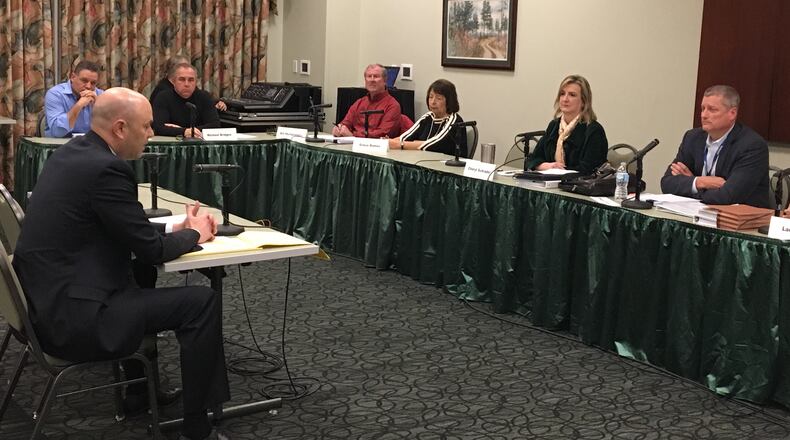“Certainly it’s the union’s prerogative to strike. They have that right …Am I worried? It’s hard to say at this point,” board chairman Doug Fecher said.
» BUSINESS: Amazon leases 10 more cargo planes from area company
Wright State’s administration and faculty union have been in contract negotiations for more than a year and a half and on Friday an attorney for the board said they “do not believe that any continuation of discussion with the AAUP would be fruitful at this time.”
The new terms and conditions moves faculty union members into a “uniform” health care plan, maintains current rules of retrenchment, includes no pay raises and would allow faculty to be furloughed as part of “cost savings days.”
“We hope we never have to use cost savings days for any of our employees,” said president Cheryl Schrader
Fecher has said that reaching an agreement on a contract was the “biggest challenge” facing Wright State in the new year. On Friday, Fecher said the university’s position in negotiations has been focused on reaching an agreement that would help make the university financially sustainable in the long-term and would prevent increased costs to students.
Both Fecher and AAUP-WSU president Martin Kich have said they hoped to avoid a strike.
But, Kich said Friday the union had not formally negotiated with the administration and board on contract impasses since early November. Kich said the union had made some preparations for a strike but was waiting to see what the board and administration ended up doing.
Contract talks first stalled in March 2017 when then-president David Hopkins abruptly resigned just a few months before his retirement. Although the union contract expired in June, an agreement with the administration means the expired contract remains in place until a new one is reached.
» A LOOK BACK: Big stories of 2018: Good Sam, new jobs, base active shooter incident
A fact-finder’s report released in October called for no pay raises, the possibility of furloughs and increased health care costs while dismissing the idea of downsizing Wright State’s athletics department. The board of trustees voted to accept the report while union members overwhelmingly rejected it in a vote of 467-12.
Tensions between the Wright State administration, board and faculty union reached a boiling point in November when some faculty senate members called for a vote of no confidence in president Cheryl Schrader. Such a vote could be months away due to faculty senate procedures.
Wright State reduced its spending last year by around $53 million, and the school was under federal investigation for more than three years for its misuse of H-1B visas. Schrader recently announced that WSU will avoid being placed on fiscal watch status by the state, and the board reached a $1 million non-prosecution agreement with the U.S. Attorney’s Office to end the federal probe.
“I don’t know any board member…or anybody else involved in the administration that doesn’t want to heal this university, increase our enrollment, increase our revenue and be able to share the benefits of that down the road,” Fecher said. “But, we have to get there first.”
FIVE FAST READS
• Easton to anchor expansion with new store in 2019
• WSU may face more scrutiny despite deal on federal visa investigation
• Heating costs could spike this winter as natural gas prices increase
• EXPERT: Wright-Patterson ‘crucial to avoiding a defeat if there’s a World War III,’
• What UD’s change in its China Institute says about shifts in higher education
About the Author
